Field Marshal Montgomery is famous as a military leader and strategist, and also as an occasionally testy and difficult character. But the way to his heart was via the cage birds he constantly kept.

BIRDS IN WARTIME
AWARDED the Distinguished Service Order for gallant leadership in the First World War, General Bernard Montgomery (1887-1976) was no stranger to conflict by the time he led the British Eighth Army through the Battle of El Alamein, and to victory in North Africa in 1943. He went on to command the British Eighth Army during the allied invasion of Sicily and Italy.
Whereas some soldiers collected battlefield souvenirs during their fight through Europe, Montgomery consoled himself by accumulating a number of birds. In the autumn of 1943 his mobile caravan headquarters were stationed under the shadow of Mount Etna on the Mediterranean island of Sicily.
Writing home, he explained that he was always fond of collecting birds and had the chance to continue his hobby in Sicily. He managed to buy some canaries from a local town and wrote that the female from one pair had built her nest, laid three eggs and began to sit on them. He enjoyed watching her nesting activities and commented that when his caravan was driven some 30 miles away, she firmly sat on her eggs for the entire journey.
Donated by a grateful Sicilian, Montgomery’s headquarters also boasted a very fine peacock which strutted round the caravan and the mess hall. In addition, there were about 12 chickens and two turkeys that wandered in and out of the tent during meals, getting fed by everyone.
The hens apparently laid eggs very well and the turkeys became so tame that they took food out of the general’s hand. During their stay in Sicily the bird population was further increased as a broody hen brought up a family of three chicks.
Diese Geschichte stammt aus der March 1,2017-Ausgabe von Cage & Aviary Birds.
Starten Sie Ihre 7-tägige kostenlose Testversion von Magzter GOLD, um auf Tausende kuratierte Premium-Storys sowie über 8.000 Zeitschriften und Zeitungen zuzugreifen.
Bereits Abonnent ? Anmelden
Diese Geschichte stammt aus der March 1,2017-Ausgabe von Cage & Aviary Birds.
Starten Sie Ihre 7-tägige kostenlose Testversion von Magzter GOLD, um auf Tausende kuratierte Premium-Storys sowie über 8.000 Zeitschriften und Zeitungen zuzugreifen.
Bereits Abonnent? Anmelden
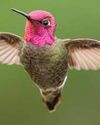
The World's Best-Known Hummingbird?
Intensively studied, the gem-like Anna’s hummingbird is a welcome visitor to the gardens of America’s most populous state: California. Bill Naylor investigates its life history
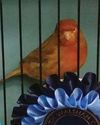
The charm of the English Cinnamon
Despite its long and complicated history, the true Cinnamon canary is still with us – in the hands of a tiny group of breeders. DONALD SKINNER-REID reckons it deserves wider appreciation
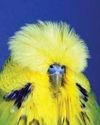
Spangles: a personal overview
FRED WRIGHT relates a budgie story of over-exploitation, consequent problems and abundant potential for the future

New converts to old breeds
Old and rare canaries have a reputation for adding fresh interest and challenge to the hobby. PETE HOOK and NICK JOY agree, and explain the birds’ charm to Dave Brown

Themed aviaries are a hit with the public at annual Stafford show
DECORATIVE AVIARY DISPLAYS from a CBS and an online bird keeping advice group were voted in the top three by visitors for the inaugural Stafford Aviary Competition.
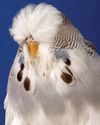
Pieds with potential
More than just a lesser variety, the dominant pied will introduce challenge and change into most studs, reckons CLIVE WAKEMAN. Here he discusses pairings to try and others to avoid

Club News
Welcome to the club and show pages – the bit that’s all about you Results: convention, specialist & rare and Breeder of the Year
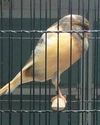
Canaries Month by Month:
With Christmas around the corner, BRIAN KEENAN is well into his winter programme, and reckons he might deserve a nice outcross
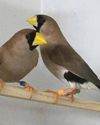
Smart Choice, Docile Nature
Dave Brown welcomes the masked grassfinch to his birdroom and shares advice on this lovely Australian species
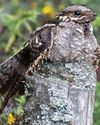
The truth about the ‘flying toad'
Odd local names and weird superstitions can’t hide the beauty and elegance of the nightjar, a species that has made a fascinating subject in a few zoo collections, reveals BILL NAYLOR